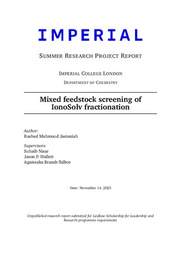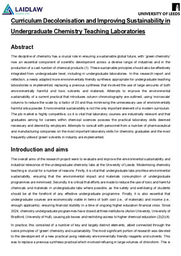Queer Lives: Narrations of Work Abroad (June 10)

Linking Road is a four-kilometre length of asphalt that lies between the suburbs of Bandra and the -north beaches of Juhu, running parallel to the ocean coast. True to its name, the street was designed to be an arterial city link, connecting otherwise distant parts of Mumbai in a single, sun-drenched stretch.
It’s also, as I soon find out, one of the most crowded places I’ve ever walked through. As I hop over a loose stone and inch around a protruding stall, I try to keep every part of my body as still as possible, fearing that one awkward movement will knock over a row of intricate displays. After all, Linking Road is the third largest shopping district in India – a fact that is not hard at all to believe as I pass rows upon rows of street sellers, waving about clothing, jewellery, socks, shoes, glassware, woodwork – you could furnish an entire home given a few hours here. Every inch of available space is covered either by eager buyers, flocking about like young birds to a nest.
Even though the sun has already faded by the time Revathi Auntie and I make it to the area, life has not ceased; if anything, the slowly dimming heat is an aphrodisiac, drawing in the evening crowd. The two of us have come here with a purpose, but what should be a ten-minute trip quickly becomes an hour: there’s simply too much to see, too much to take in. I do not know how I would go about describing Linking Road – every possible colour exists somewhere in the mesh of space, every sound can be heard, every spice somewhere in the air. Specificity is a vain task – one I shall attempt anyways, in hopes of conjuring at least a small portion of it all.
Let’s focus, then, on a few metres, just past the first intersection but before the yellow divider begins. I’m on the left side of the street, heading north, and the sky above is a brilliant, dove-feather grey, speckled with pink and orange. A small grouping of stalls sits at the start of the block, spilling onto the road as apples tumble from a spring tree: it’s impossible to tell where one ends and the other begins. Pinned up to the cardboard walls are every manner of clothes imaginable: butterfly-blue corsets, traditional kurtas, jeans and suits and saris. One catches my eye, hung high on the frontmost stall – a brilliantly purple shirt with flowers peeking over the sleeves. A market doesn’t begin to describe the sight: it’s a waterfall of fabric – of colour and texture and style, threatening to collapse over the dulled white walls.
As I walk amongst the stalls – the ant amongst the apples – I am immediately greeted by a chorus of voices, cacophonic, each vying for attention. One seller pulls a pack of handkerchiefs from his pocket, and another shows me arms laden with handbags. They swarm in seconds, surrounding me, and there’s nowhere I can turn without walking headfirst into a new advertisement – at least, not until Revathi Auntie comes to my rescue and pulls me out. She stops a few footsteps away to buy a set of toddler socks, for her dog Piku, as she tells me, who lives in second home a few hours away from the city. As she rummages in her wallet for a 20 rupee note, the shopkeeper immediately turns to me and holds up another set of socks – and, when that fails, a children’s shirt, which I’m fairly certain would have been three sizes too small for me.
It’s impossible to escape without talking to someone – an experience which I’ve found common through the city. Colleages, auto drivers, the guy down the road who makes pani puri: everyone talks, especially if they notice you don’t. I think back on a moment from just earlier today in the office, when a man I had never spoken to before joined me at my desk and started a twenty-minute conversation about mysorepak, a traditional south Indian sweet I had brought in to share earlier that day. Language barriers have little meaning here – although he spoke only Hindi and I only English, we managed without fail to convey our mutual love for the crumbly, homemade delicacy.
However, despite the sheer number of conversations I have in a day, I still find myself extremely lonely at times. It’s a paradox I keep coming back to: a city of over 12.5 million people, standing in the middle of a bustling, popular street, and yet, I feel lonely. I suppose there are multiple reasons for it – family stressors, missing my friends, the novelty of unfamiliar work. Truly, though, I think the paradox itself is the cause. I’m meeting a slew of new people daily, but the conversations I have with them are often short and restricted to a very specific topic, be it work or travel or university. I find myself thinking often of my friends from back home – our late-night debriefs over pints of ice cream and Wotsits, sitting and talking until our tongues freeze and the clocks run into morning. When I moved out of my hall this spring, after spending two years there, my best friends and I spent a sentimental hour reminiscing on our favourite memories from my room, which had always been a space for all three of us. While we brought up important events and major life moments, we unanimously agreed that our most cherished memories were just regular weekday nights, the two of them curled up on the floor watching Doctor Who as I edited an essay at the desk. Here, my nights, albeit peaceful, are entirely my own. Loneliness, I feel, is all the worse when you know the love you’re missing.
Still, setting aside the slight dip in my gut, I completely lose myself in Linking Road – and I almost literally lose myself when Revathi Auntie moves ahead to find another stall. In the flurry of movement all around, I nearly forget the actual reason I came to the area: a cosmetics store just a few blocks away. By the time we finish running errands, it’s fully dark – but the constant hum of noise has not lightened even slightly, promising a late night ahead. Our night, however, will be spent back in the cozy embrace of four solid walls, accompanied by a cup of hot pumpkin soup and several bowls of fruit. I love to peel the lychees, watch the glistening white flesh press through my fingers like a softly spoken secret. Next is the deep red of mangosteen and the scarlet of cherries, and finally handfuls of pomegranate seeds, bursting like fireworks against my teeth. My hands stain crimson, blushed in the pale kitchen light. Sleep is a slow siege, spreading through my limbs; somewhere between cherry pits and lychee skins, I surrender.





Please sign in
If you are a registered user on Laidlaw Scholars Network, please sign in